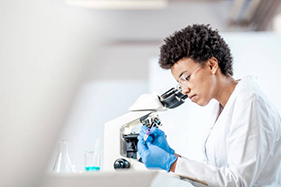Cancer Basics: What Everyone Should Know
Cancer remains one of the top causes of death worldwide, but many types can be prevented or managed through lifestyle changes and early detection. Understanding the nature of cancer, recognizing its symptoms, and knowing the risk factors are crucial for taking proactive steps toward prevention and treatment. Understanding Cancer Cancer occurs when some of the body’s cells begin to grow uncontrollably, forming a mass known as a tumor. These abnormal cells can invade nearby tissues and spread to other parts of the body through the bloodstream or lymphatic system, a process called metastasis. Cancer can start in virtually any organ or tissue, and its growth rate can vary significantly—some cancers grow rapidly, while others progress more slowly. Symptoms to Watch For While symptoms can differ based on the type and location of cancer, there are several common signs that should prompt further medical evaluation: Risk Factors Various factors can increase the risk of developing cancer. These include: Early Detection and Treatment Early detection of cancer greatly improves the chances of successful treatment. Regular health screenings and being vigilant about changes in your body are essential. Methods for early detection include: Common Treatments Treatment options for cancer depend on the type and stage of the disease, as well as the patient’s overall health. Common treatments include: Stay Proactive About Your Health Understanding cancer, recognizing its symptoms, and staying informed about risk factors are vital steps in maintaining your health. Regular medical checkups, a healthy lifestyle, and awareness of changes in your body can help you catch cancer early and improve the likelihood of successful treatment. Take control of your health by being proactive. Stay informed, seek regular medical advice, and make lifestyle choices that promote well-being. Early detection and prevention are your best defenses against cancer.
Cancer Basics: What Everyone Should Know Read More »


